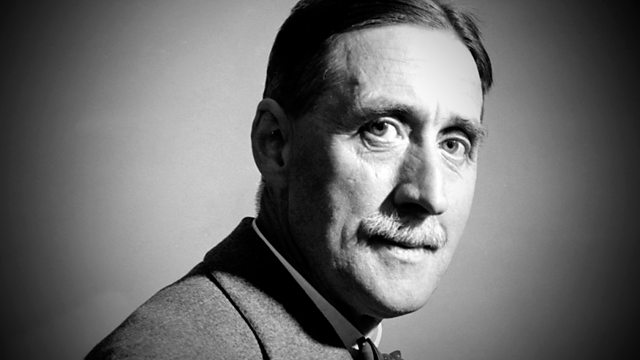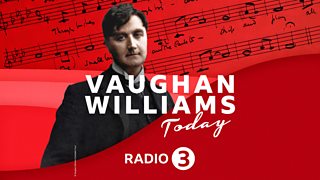
Dyson Hears a Hurdy-Gurdy
Donald Macleod discusses Dyson's early life, including study at the Royal College of Music. Including The Wife of Bath, Primrose Mount, Rhapsody No 1 and The Blacksmiths.
Celebrated composer, broadcaster, teacher, and author of the first manual on hand grenade use, this week Donald Macleod explores the life and music of Sir George Dyson. Born in Halifax, Yorkshire, Dyson's musical talents soon materialised as he became a notable organist. He went on to study at the Royal College of Music where he would later become a composition teacher, and then director, insisting that the RCM remain open during WWII. During his distinguished career he taught at a succession of public schools including Wellington and Winchester, he became a regular 91�ȱ� broadcaster and also worked tirelessly for the Carnegie UK Trust. The Canterbury Pilgrims, a set of colourful Chaucerian portraits, along with his Service in D has become Dyson's calling card, but he also composed a Symphony in G and a Violin Concerto, along with many choral and chamber works.
Donald Macleod, in the company of biographer, Paul Spicer, visits the Royal College of Music, an institution that played a significant part in the life of Sir George Dyson. Very little survives of Dyson's early works, although there is a Cello Sonata he composed whilst studying composition at the RCM under Stanford.
It was Stanford who suggested Dyson travelled to Italy to study, courtesy of a Mendelssohn scholarship, and his music composed during that period includes the Rhapsody No 1. Upon his return to the UK, Dyson took up teaching, including organising musical activities at the Royal Naval College at Osborne where two royal princes were cadets. Dyson never forgot his Yorkshire roots though, keeping his noticeable Halifax accent. Later he'd compose a work that related to his early years and his father's trade, The Blacksmiths.
Last on
More episodes
Previous
You are at the first episode
Music Played
-
![]()
Sir George Dyson
Rhapsody No. 1 (Concertstuck in A major No. 1)
Ensemble: Divertimenti.- Helios CDH55045.
- 5.
-
![]()
Sir George Dyson
Prelude (Prelude and Postlude)
Performer: Ian Coleman.- Unicorn-Kanchana.
- 4.
-
![]()
Sir George Dyson
The Wife of Bath (The Canterbury Pilgrims)
Orchestra: London Symphony Orchestra. Singer: Yvonne Kenny. Conductor: Richard Hickox.- Chandos CHAN95312.
- 4.
-
![]()
Sir George Dyson
The Blacksmiths
Performer: Richard Markham. Conductor: Sir David Willcocks. Performer: David Nettle. Orchestra: Members of the Royal Philharmonic Orchestra. Choir: Royal College of Music Chamber Choir.- Somm SOMMCD014.
- 4.
-
![]()
Sir George Dyson
Cello sonata: Mvt 1 - Poco Andante
Performer: David Owen Norris. Performer: Joseph Spooner.- Dutton CDLX7137.
- 11.
-
![]()
Sir George Dyson
Primrose Mount
Performer: David Owen Norris.- Dutton CDLX7137.
- 33.
Broadcasts
- Mon 29 Sep 2014 12:0091�ȱ� Radio 3
- Mon 29 Sep 2014 18:3091�ȱ� Radio 3
Vaughan Williams Today
Beethoven Unleashed – the box set
What was really wrong with Beethoven?
Composers A to Z
Who knew? Five eye-opening stories from Composer of the Week
Five reasons why we love Parry's Jerusalem
What is the strange power of Jerusalem which makes strong men weep?
A man out of time – why Parry's music and ideas were at odds with his image...
The composer of Jerusalem was very far from the conservative figure his image suggests.
Composer Help Page
Find resources and contacts for composers from within the classical music industry.






